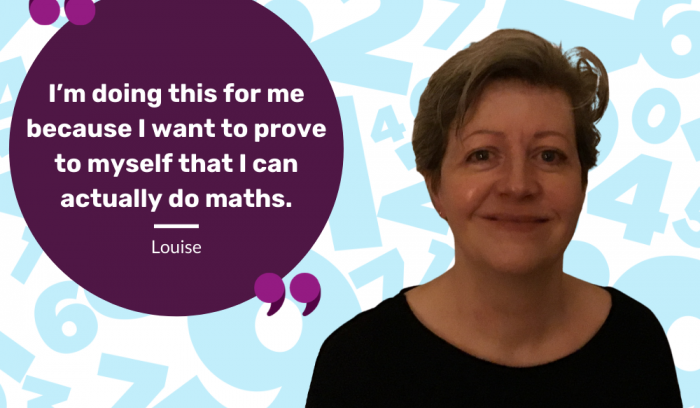Last week, Dame Sharon said that many of the 16 year-olds they hired, joined “…pretty typically not having the functional numeracy beyond the age of…10,11…” The real-world skills gap for many of those joining the workforce is a challenge reflected time and again from the business community.
So what are we missing in terms of preparing young people for the world of work and what can be done it about it? If a key role of education is as an essential preparation for adult life, we must equip young people with the skills to thrive, the confidence to apply these skills and the belief that they can be improved across a lifetime.
Improving numeracy for work
At National Numeracy, we support people to improve their numeracy. We’ve learnt that while too often the UK struggles to equip young people entering the workforce with the basic skills to address day-to-day challenges, the most significant barriers are around confidence and belief.
Imagine, for a moment, the experience of a young person emerging from 11 or 12 years of education without functional numeracy (about half of the working-age population) and their feelings and relationship with numbers and maths? We’ve asked thousands of adults with low numeracy this very question and the most common responses very understandably include ‘anxious’, ‘nervous’ and ‘confused’.
Against this backdrop, it is no surprise that the proliferation of courses to further develop adult numeracy have consistently struggled to attract at scale those who could benefit most.
Where do we go from here?
1. We must ensure that all young people, regardless of their attainment level in maths at school, enter the workforce with both the confidence to use numbers to make good decisions, and the basic skills they will need to thrive at work, at home, and in managing their money.
2. To support the half of all adults with low numeracy to improve, we must focus first and foremost on stimulating demand by supporting people to build number confidence. Doing so is the gateway and first step towards building the numeracy skills to unlock opportunity at the individual level and provide the stimulus for a more productive workforce and economy.
National Numeracy helps employers support their staff
National Numeracy has supported thousands of adults with low numeracy to develop the confidence to re-open the door to numbers and maths, and to start building their skills.
Working with employers, our solutions are uniquely effective at supporting people of any age to develop the skills they need to thrive in the workforce.
If you would like to improve numeracy in your workplace, please get in touch with Sally Hilton, our National Relationship Manager: sally@nationalnumeracy.org.uk






